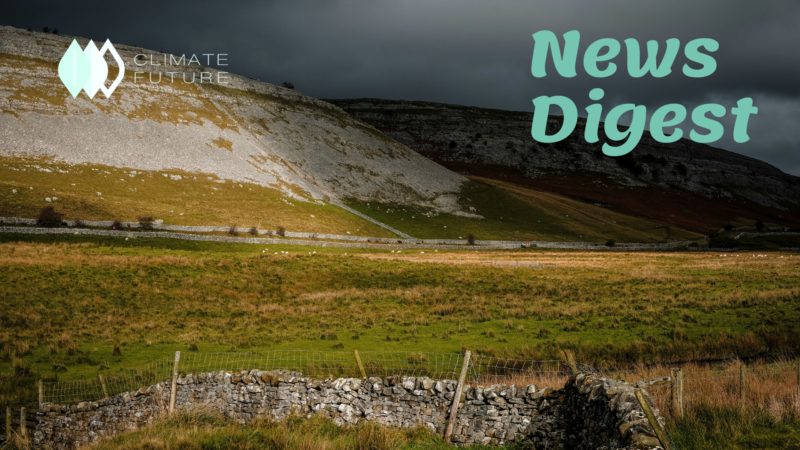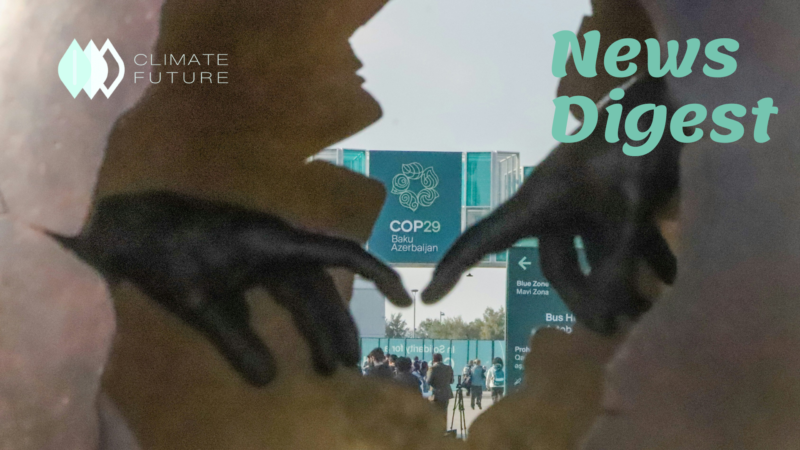Adapting to climate change ‘happening worldwide’, essential
At the start of the 55th Session of the UN’s Intergovernmental Panel on Climate Change (IPCC), the head of the UN weather agency said that the impacts of climate change are obvious and happening around the world. The meeting opened to accept the second IPCC Working Group report which highlights the impacts, vulnerability and adaptation to climate change. The report emphasized on the physical science of climate change, affecting the work of the Glasgow UN Climate Conference, COP26 last year. The WMO chief reported that some parts of the world such as developing countries, specifically, Africa, Pacific Island and Southern Asia and tropical latitudes are mostly vulnerable to climate change. In 2021, WMO published a report on disaster statistics which showed for the last 50 years, 4.5 billion people have faced a serious weather-related disaster over the last 20 years. Although there is a growing trend of rising sea levels, continuing disasters and glaciers melting, the top WMO official underestimated the importance of adaptation.
Women building a sustainable future: green business begins to sprout in Ukarine
In Ukraine, enthusiastic women entrepreneurs are taking up new methods to business by setting the environment and people first for coal mining operations. Valentina and Tetiana Denysenko had to flee to Donetsk in eastern Ukarine since they were forced after armed conflict occurred there seven years ago. After that, they moved out to the Kharkiv region and found a mini farm named Green for You. They grow lettuce, microgreens and herbs at that farm. Restaurants order 300 kilograms of produce monthly from the farm of the sisters. “Svidomo Made” in Ukarine is one of the examples of project initiatives funded by the UN migration agency (IOM). In 2016, IOM supported equipment for Green for You under its economic empowerment program. With the aim to create a network of responsible businesses, IOM started a pilot project called “Sustainably Made in Ukarine (SIvdomo Made)” in November 2020. It intends to develop the first voluntary Corporate Sustainability Standard for the SMEs in the country. The Standard is measured with the Principles of the UN Global Compact which consists of ethical labor practices, protection of human rights, anti-corruption and environmental responsibility. Consumers in Ukarine are more aware of innovative businesses which provide sustainable solutions with the help of the Svidomo Made project.
World must ‘change track’ to protect oceans from climate crisis: Guterres
At the One Ocean Summit, Secretary- General Antonio Guterres said that the planet is facing biodiversity loss, pollution and the triple crisis of climate disruption and the ocean has to carry much of the burden. Since the ocean performs as a giant carbon and heat sink, it becomes more acidic and warmer, causing its ecosystems to suffer. At the conference, the UN chief said that polar ice is melting and weather patterns are changing globally. The communities which depend on the ocean also suffer, especially over three billion people rely on coastal biodiversity and marine for their livelihood. In addition, fish stocks are endangered by destructive fishing practices which are illegal, unregulated and unreported. The UN chief mentioned that concrete actions must be made to protect the ocean, focusing on a sustainable blue economy to drive job creation and economic progress while protecting climate. Since 90% of the world trade is made by the sea, shipping accounts for almost 3% of global greenhouse gas emissions. In order to promote a sustainable ocean economy, the Secretary-General mentioned that global partnership and investment is needed to promote support to ocean science.
Women building a sustainable future: The Mexican violinist who saved the Sierra Gorda
Martha Isabel Ruzi Corzo also known as Pati left Queretaro, the Mexican city with her family to search for a simple rural life. But, she ended up inspiring and leading a group of 17,000 local environmental activists who are dedicated to protect the beautiful and remote Sierra Gorda. She decided to have a simple life and moved her family to Sierra. Gorda. She wanted to give up urban comforts and live without electricity for five years by making a closer connection with nature. Soon after arriving, she witnessed that the environment was being destroyed with uncontrolled fires, rampant tree cutting and indiscriminate opening of trails. That caused her to work closely with the local community by replanting trees to restore the forest. Their activism escalated eventually into a project to have a protected biosphere reserve in Sierra Gorda which lobbied the state governor and tried to get state and federal funds. The protected area covers nearly 385,000 hectares which is almost one third of the state of Queretaro. Over 17,000 members of mountain communities participate in activities to improve sanitation, training, education, food production, agricultural diversification and the regeneration of forest resources. The result is that the general population is aware of environmental issues and cabinet members become ecologists in some municipalities.
Island States must bolster resilience to existential climate threats
The Chief Economist of the Food and Agriculture Organization of the United Nations (FAO) said the Global SIDS Solutions Dialogue emphasized on the tough challenge which impoverished low-lying nations to encounter the goals of the UN’s 2030 Agenda for Sustainable Development. It also emphasized the pressing need to strengthen their resilience to natural disasters, climate change and other external shocks like the COVID-19 pandemic. The Chief Economist said that FAO is supporting SIDS to restore and achieve better production, environment, nutrition and life. He explained that these are the fundamentals of the UN agency’s new strategic framework to secure more inclusive, efficient, sustainable and resilient agri-food systems with the aim to reduce poverty, inequality, hunger and malnutrition. SIDS consists of only 1% of carbon dioxide emissions with around 65 million inhabitants. However, they are the most vulnerable to the existential threats with the impacts of climate change. SIDS in the Caribbean, small islands in the Atlantic and Indian Ocean, the Pacific and the South China Sea depend on food imports. To recover from COVID-19 and implement SDGs, it is important to identify homegrown solutions and innovation with digitalization as a factor to develop the process.
UN partnership aims to combat microplastics in cigarettes
The World Health Organization Framework Convention of Tobacco Control and the UN Environment Program (UNEP) will launch a social media campaign to spotlight the issue. The partnership is made through UNEP’s Clean Seas campaign with a global coalition from 63 countries devoted to ending marine plastic pollution. It coordinates the two agencies’ respective experience on health policy dimensions of research and advocacy on plastic pollution and tobacco products. Yearly, over six trillion cigarettes are produced globally. Each contains butts or filters and is mainly made of microplastic called cellulose acetate fibers. Cigarette butts are the most common plastic litter on beaches and make marine ecosystems more damaged by microplastic leakages. These microplastics can disturb food chains and are connected with serious human health impacts. The social media campaign aims to encourage influencers including Young Champions on the Earth and UNEP’s Goodwill Ambassadors. It will consist of a political advocacy angle by emphasizing a recent EU directive which needs all tobacco products with plastic filters to be clearly labeled. The goal is to provoke the public for similar changes around the world.


